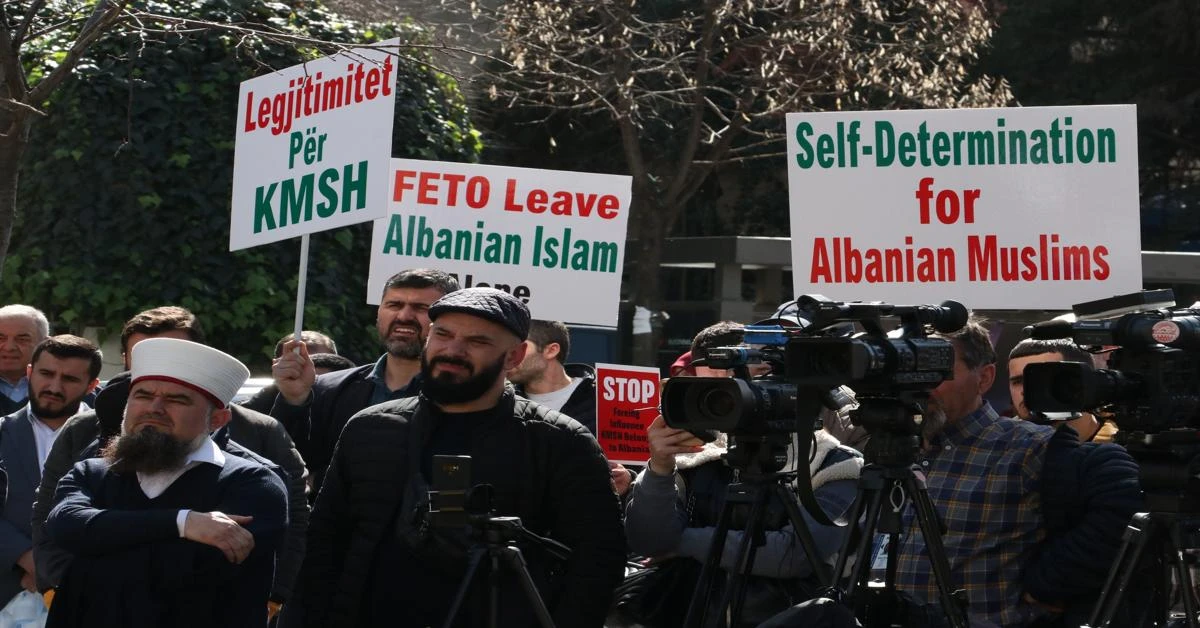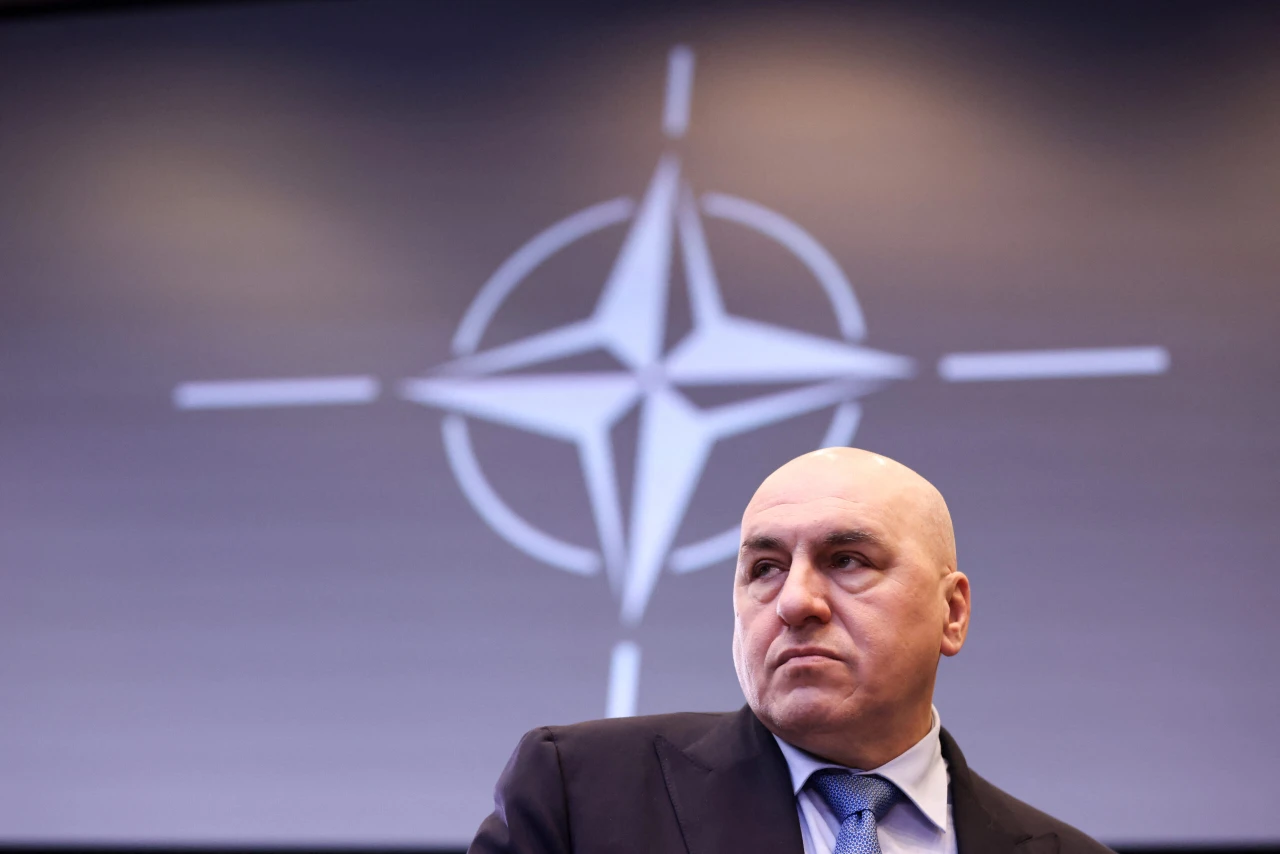Albania’s Muslim leader re-elected despite protests over Gulenist allegations

The Albanian Muslim Community faces internal strife as leader Bujar Spahiu, accused of ties with Fethullah Gulen, secures re-election despite public dissent and international diplomatic pressures
The re-election of Bujar Spahiu as the head of the Albanian Muslim Community on Sunday has ignited significant controversy due to allegations of his support for the exiled Turkish cleric Fethullah Gulen.
Despite these accusations, Spahiu was re-elected with a substantial majority, securing 82 of the 92 votes.
The election process, held at the Tirana Medrese, was overshadowed by demonstrations led by a segment of the Muslim faithful. Protesters accused the leadership of the Albanian Muslim Community, particularly Spahiu, of being influenced by the so-called ‘Gulen Movement.’
They expressed their disapproval with banners stating, “Gulenists should stop occupying the Muslim Community of Albania” and “Save the Muslim Community of Albania from the tentacles of FETO.”
In response to his re-election, Spahiu commented, “I will follow the path, the tradition, of the high morality of the prophet. I will continue to listen attentively to honest criticism that comes my way.” His statement focused on upholding justice and fairness within the community without directly addressing the allegations.
It’s important to note that Türkiye labels the Fethullahist Terrorist Organisation (FETO), led by Gulen, as a terrorist group implicated in the failed 2016 coup attempt. This classification has profoundly impacted Türkiye’s diplomatic relations and policy actions concerning the Gulen Movement.
In line with this stance, the Turkish government has exerted pressure on Albania to extradite individuals suspected of being Gulenists and to shut down institutions affiliated with Gulen.
Security researcher Romario Shehu, speaking to these tensions, noted, “In recent years, the Turkish government has increased pressure on the Albanian Muslim Community to replace its current leaders, who are seen by Ankara as Gulenists, with other figures with whom Türkiye can cooperate more closely.”
The outcome of this election, while affirming Spahiu’s leadership, also shows the persistent discord within the Albanian Muslim Community, mainly stemming from concerns over his alleged connections with Gulen.
This has raised questions about the influence of foreign elements in Albania’s religious affairs and has led to visible unrest among certain community members.
Source: Newsroom



